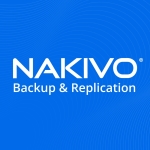We use Azure Backup to backup and restore virtual machines as well as SQL Databases.
The only issue we have right now is the amount of time it takes to restore. When we attempt to restore a virtual machine, it can take hours. This is an area that could be improved.
The length of time it takes to restore is our main source of frustration. It would be beneficial to shorten the time it takes.
We had issues with shared storage in the past where it couldn't be included in the backup. Shared storage, or shared disc, wasn't available. I believe Microsoft promised to put it in their pipeline for improvement in order to add this, but I haven't double-checked. This was the issue with shared managed discs, and not being included in this backup scope.
If the shared managed disc could be included with the backup, it would be better.
I have been using Azure Backup for three years.
Azure Backup is very stable.
Azure Backup is a scalable solution.
We work with it all of the time.
Technical support is very helpful. I would rate them a four out of five.
The initial setup was straightforward. It was something that was easy for us.
It was completed within a few minutes. It can depend on the environment, but usually, it is fast.
The number of staff required for maintenance depends on the automation. We require more staff now, but we are working on the automation. Generally, it is relatively low. For the most part, it works by itself.
We operate in our own environment.
Licensing fees are paid on a monthly basis.
It's not an expensive solution. I am more than happy with the price.
We are working in our own environment, assisting KPMG users and firm members. We also have internal companies.
I am an Azure Architect.
It's useful, it works, and it's fairly reliable. The only issue right now isn't a big one, but our users sometimes need faster recovery, faster restoring of services, and faster restoring of data.
I would rate Azure Backup a nine out of ten.

















